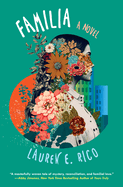At the International Publishers Association's Freedom to Publish Open Meeting last week at the Frankfurt Book Fair, IPA president Karine Pansa, owner and publishing director of Girassol Brasil Edições in Brazil, said that threats from "outside our sector and within" exist against the trinity of freedoms most important to publishing: "freedom of expression, freedom to publish, and freedom to read."
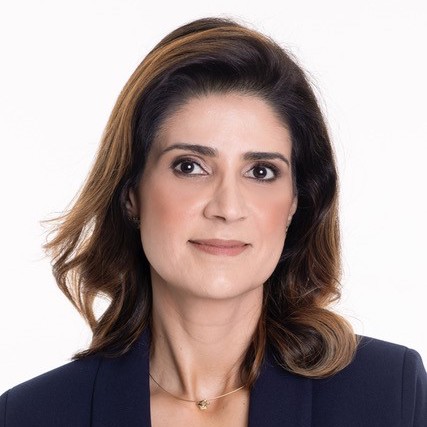 |
| Karine Pansa |
The threats affect trade, education, and STM. While fewer countries use "draconian censorship laws with official state censors," more countries use "other tools" to ban and limit access to books and disrupt publishing and bookselling, including imprisoning publishers to intimidate others; protection-of-minors laws that take certain books off shelves; the abusive use of defamation laws; pressure groups that push to have books removed from school libraries; and even pressure groups from within publishing houses against potential authors with problematic views.
These forces have led to many cases of self-censorship, Pansa continued, with publishers choosing not to publish a certain book or sign a certain author and booksellers not buying certain books. "Our freedom to publish suffers when self-censorship is allowed to take hold," she commented.
In the state of São Paulo in Brazil, Pansa said, the local government attempted to bypass publishers to create its own digital material. Publishers were able to derail that plan through a lawsuit, but governments in Mexico and the Dominican Republic continue efforts to take over textbook publishing, something that has unfortunately succeeded in Hungary.
---
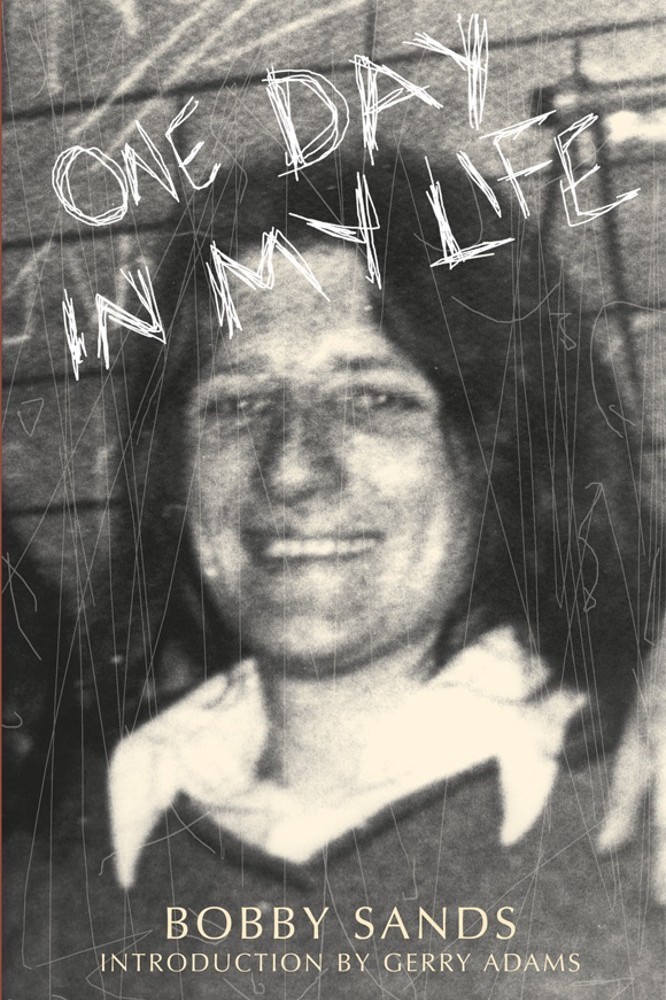 Celebrating its 80th anniversary next year, Mercier Press was shortlisted for the IPA's Prix Voltaire, for fighting for free expression in Ireland, a country where for many years the Catholic Church and the government combined to censor a variety of books dealing with social, culture, religious, and political issues. (Until 1960, the word "pregnant" did not appear in print in Ireland, for example.)
Celebrating its 80th anniversary next year, Mercier Press was shortlisted for the IPA's Prix Voltaire, for fighting for free expression in Ireland, a country where for many years the Catholic Church and the government combined to censor a variety of books dealing with social, culture, religious, and political issues. (Until 1960, the word "pregnant" did not appear in print in Ireland, for example.)
Many books published by Mercier Press have been groundbreaking, including One Day in My Life by Bobby Sands, the IRA political prisoner who died 66 days into a hunger strike in 1981. When his prison memoir was published in 1983, one of the major booksellers in Ireland refused to sell the book, and others were hesitant. Dee Collins recalled that Mercier Press's John Spillane then visited a bookseller in Northern Ireland whose response was one of the best we've ever heard concerning controversial titles. The bookseller said, "If I don't sell it, one side will be at me. If I do sell it, the other side will be at me. Give me 20."
---
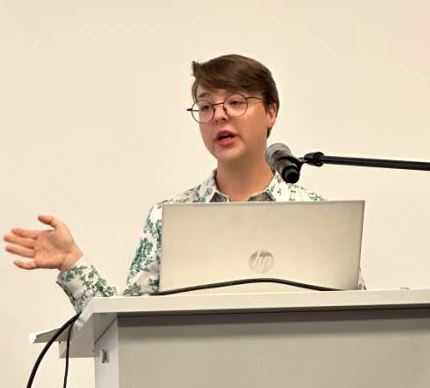 |
|
Zala Zagoršek Golob
|
At the European & International Booksellers Federation conference, Zala Zagoršek Golob of VigeVageKnjige in Slovenia, the guest country at the fair this year, outlined the Slovenian book market and the scrappy, creative ways the publisher and bookseller she works for operates.
Founded in 2012, VigeVageKnjige has eight staff members, who do a range of things, and are "close knit," with no strict hierarchy or set boundaries. (Golob herself handles rights and events, among other things.) The house has published 63 titles, specializing in graphic novels and comic books translated from many languages--because "we wanted to bring something new to our country," which, with a population of two million, is a small market. The house publishes at least one original Slovene book a year and emphasizes using local businesses for printing, binding, etc.
Many of VigeVageKnjige's titles are about "taboo subjects," Golob said, targeting themes that have not been addressed in major ways in Slovenia, including a book with an intersexual character and a title about the Charlie Hebdo massacre in Paris in 2015. The house often publishes books that it knows won't be bestsellers because those books are important for improving literacy and opening up the Slovenian book market to new subjects and areas.
Golob called the market for graphic novels in Slovenia undeveloped. As part of its work, VigeVageKnjige has done such things as invented a Slovenian word for graphic novel, which was "a word of the year" in 2019. Because literary critics and reviewers "said they didn't know how to critique graphic novels," the house held a workshop for critics and reviewers featuring Rachel Cooke, who reviews graphic novels for the Guardian. In an effort to get Slovenian writers to write graphic novels, the house held a workshop on screenwriting.
The house also puts on major events for titles, preferring "limited spaces is always better than unlimited spaces," and aiming to build community.
VigeVageKnjige opened its first bookstore in April, deciding on a location in Maribor and not in Ljubljana, the capital, since "centralization is really strong in Slovenia." Observing that towns and cities in Slovenia are very "locale patriotic," Golob said the company wanted to connect with that sentiment. The store is only 172 square feet so the inventory is "really curated," featuring about 600 titles handpicked by several of the staff. "We know what we're selling," she said.
The store offers suppliers favorable terms so that it attracts small, independent, and micro publishers that can't handle the less favorable terms of the country's largest bookstore chain. --John Mutter
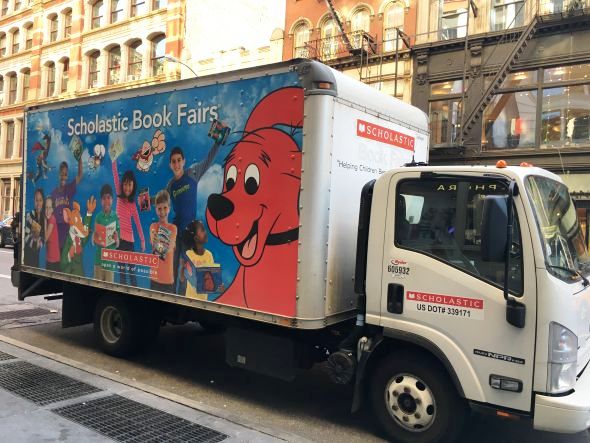












 Celebrating its 80th anniversary next year,
Celebrating its 80th anniversary next year, 
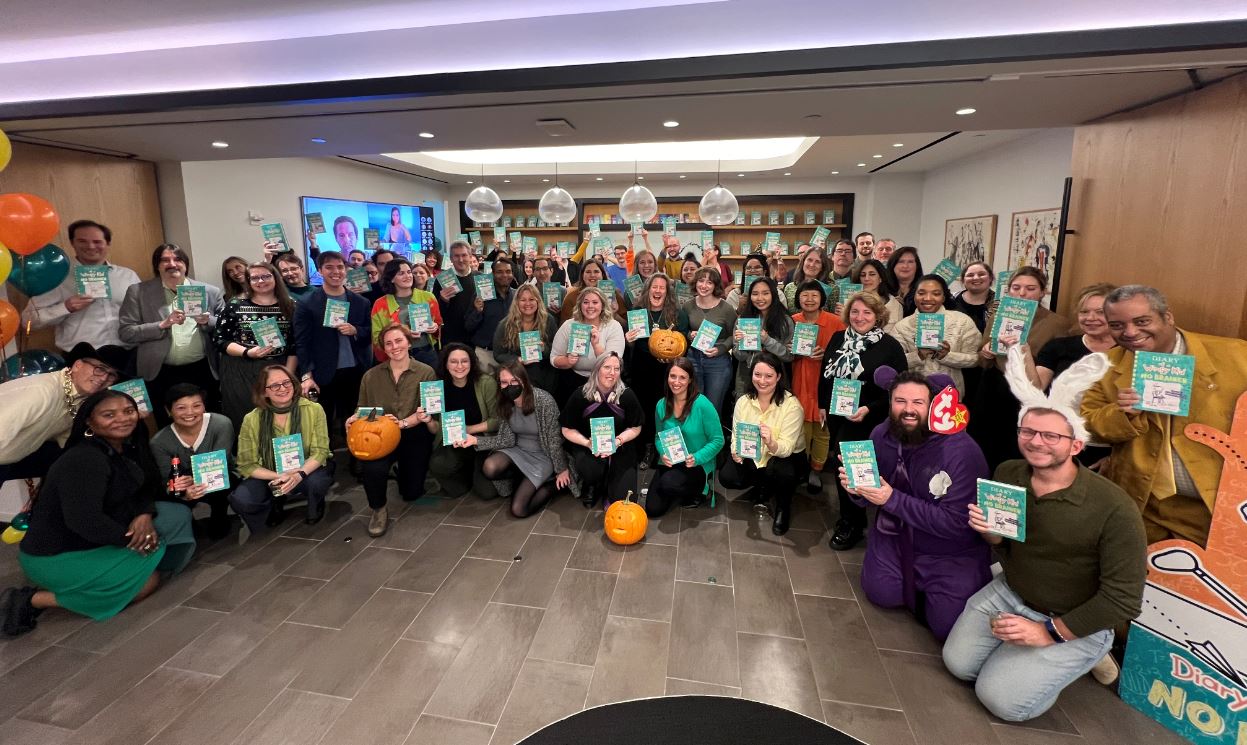 Abrams staffers gathered for a Halloween/pub date party to celebrate No Brainer: Diary of Wimpy Kid, the 18th book in Jeff Kinney's series.
Abrams staffers gathered for a Halloween/pub date party to celebrate No Brainer: Diary of Wimpy Kid, the 18th book in Jeff Kinney's series. 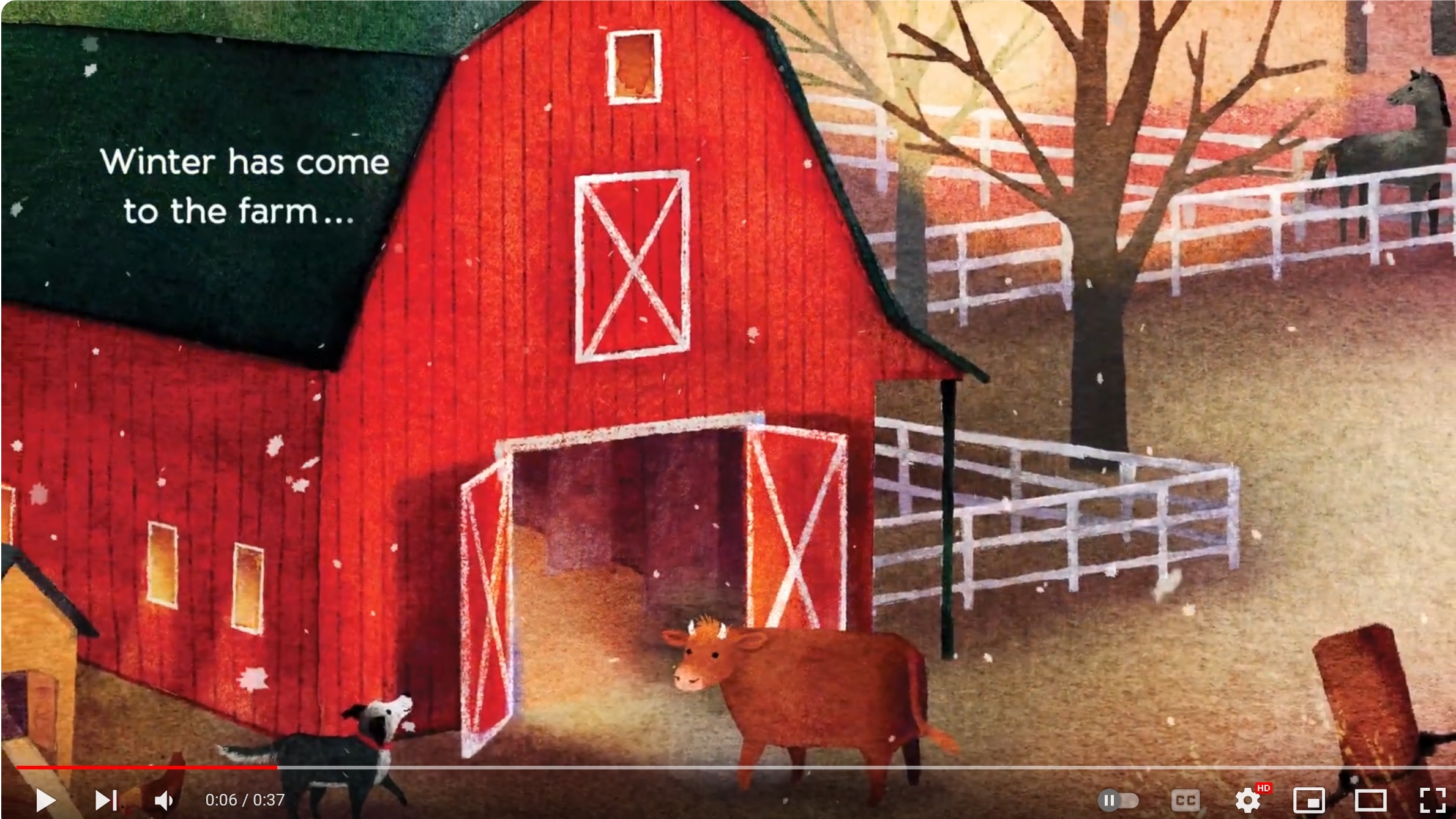 Barn in Winter: Safe and Warm on the Farm
Barn in Winter: Safe and Warm on the Farm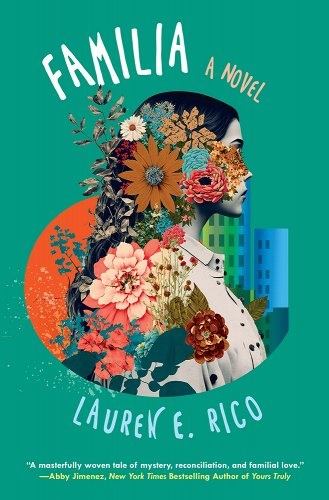 Family haunts the novel Familia by self-described "longtime radio host and short-time writer" Lauren E. Rico--family splintered, reconciled, and reinvented. Rico quickly establishes her story in the first chapter: Gabby DiMarco takes a genealogy test as research for her magazine job and finds not only "the wrong ethnic breakdown," but that she has "a full sister," Isabella Ruíz. Three hundred fast-paced pages follow, jumping back and forth between Gabby's and Isabella's narratives, from Today and That Day, to nimbly reveal the multilayered repercussions of what happened 25 years ago.
Family haunts the novel Familia by self-described "longtime radio host and short-time writer" Lauren E. Rico--family splintered, reconciled, and reinvented. Rico quickly establishes her story in the first chapter: Gabby DiMarco takes a genealogy test as research for her magazine job and finds not only "the wrong ethnic breakdown," but that she has "a full sister," Isabella Ruíz. Three hundred fast-paced pages follow, jumping back and forth between Gabby's and Isabella's narratives, from Today and That Day, to nimbly reveal the multilayered repercussions of what happened 25 years ago.